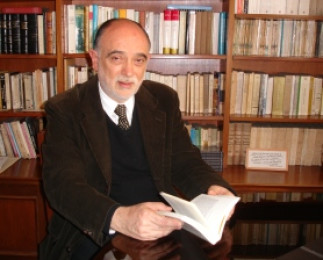cycle «Littératures en traduction»
Carlos Gatti : 'La divina Commedia. Viaggio al centro dell'uomo' (en italien)
We should be aware that writing a book like Dante’s Divine Comedy would be an impossible task nowadays. In the first place, because one should be not only a great writer, like Tolstoy or Joyce or Proust but also a great scientist like Leonardo da Vinci or Stephen Hawking. One should also have the plastic imagination of Michelangelo and the ear for music of Liszt. All this wrapped up in the comprehensive and unitarian view of the world of St. Thomas Aquinas or Aristotle and the biblical scholarship of St. Jerome (contrary to what Harold Bloom thinks). Finally, one should have the taste for abstraction of abstract art and the taste for virtuality of computer graphics, as Umberto Eco likes to point out.
This does not mean that a person of our time cannot enjoy this monument of a book. Since Romanticism, interest in the Divine Comedy has grown exponentially and we can say now that the influence of Dante’s work on readers, writers and critics has even permeated to popular culture (as Ridley Scott’s film Hannibal and some video games show). Why is the Divine Comedy great and beautiful? Probably because a complex and portentous world vision served a great artist that commanded a great range of means to express it. One can feel in the Commedia the heart-beat of
Humanity, both at its worse and at its best. Dante’s trip to the after-world is, really, a trip to this world, our world, with all its complexity and its force.

